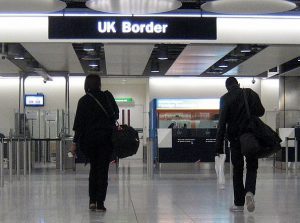How to miss ‘workplace penalties’ during the World Cup
ACAS has released guidelines on how to deal with employees keen to watch the England team during the World Cup.
The football competition fest, based in Brazil and featuring 32 teams, lasts for over a month starting on 12 June 2014.
Whilst ACAS guidance is not mandatory, the employment tribunals do pay heed to ACAS and their wise words.
To avoid it all kicking off at the workplace, employees should know where they stand regarding watching games during working hours.
ACAS advises employers to have agreements in place concerning requesting time off, watching day-time games on the internet in the office so that ‘penalties and red cards’ are avoided.
Holiday chance
One option is holidays. Employees and workers have a statutory right, under the Working Time Regulations 1998 (WTR) to a minimum 28 days annual leave. The 28 days includes all Bank Holidays. Under the contract of employment, the employee may have been granted greater holidays.
All holiday requests should be considered in a fair and equal manner. Employees must appreciate that it may not always be possible to book time off if there are other work colleagues all asking for the same days off. Agreement is key.
But if agreement is elusive, does the employee have a right to take leave on England match days? The employee can serve statutory notice under regulation 15 of WTR on the employer that leave will be taken, regardless of the absence of permission. In turn, a complicated procedure exists under the WTR, whereby the employer can serve counter-notice refusing the leave request.
Holiday notices and counter-notices are a rarely used procedure and, if possible, should remain so.
The best approach is agreement.
Sick as a parrot
If an employee is absent from work on account of sick leave then that is that. After four days of absence statutory sick pay kicks in. Most employers pay some company sick pay for a limited period of time during sick leave.
ACAS warn of the consequences of abuse of sick leave. Employees spending their sick leave energetically shouting support for England in a pub with TV screens should face disciplinary action. Such misconduct could lead to dismissal.
British Homes Stores-v-Burchell 1980 showed that a reasonable investigation a fair disciplinary process followed by an appeal was all that was required.
Dismissal is likely to be judged a fair penalty and is one penalty employees should miss.
So, don’t kid yourself. A selfie post of you and mates in the pub cheering after a stunning England goal while claiming sick leave would be regarded as relevant evidence in an investigation. Turning up late to work with a post-match hangover would also be a give-away.
While you’re at it, employers might consider reminding staff about the alcohol policy at work. Better still, supply a copy of the policy to all employees.
Employers can expect increased web activity during the World Cup so make sure the company web usage policy is also made aware to everyone.
Extra time flexibility
Back to the ACAS advice – the watchword flexibility. Employers may be able to offer flexible working hours to employees. Come in early and finish early, if your working hours allow it.
Employees might be able to swap shifts, with their manager’s permission. Some might even allow radios or TVs in the office to watch the match. All requests should be approved in writing before the match.
There is a caution about equal treatment. If some employees are permitted flexibility to accommodate their desire to watch the football, then equal consideration should be given to other employees who may want a long lunch to do personal chores.
Otherwise, the employer may find that the less favourable treatment of one group is discriminatory. Flexibility must be flexibility for all.
Good luck England.
Related News Stories
An advanced mental health practitioner was recently awarded over £60,000 after he was sacked without a fair process. An employment…
The CBI has been rocked by accusations of rape and sexual misconduct. With its reputation in tatters, members leaving by…
Swearing at work was ruled acceptable by one employment tribunal judge, while another gave out £71,000 in compensation when a…
Government agency bosses used a flawed procedure when firing a top foreign envoy for a sexual harassment accusation. The British…
Employers risk making poor and costly decisions in response to employees asking to work from their homes. Two cases have…
A judge slapped down an employer who failed to follow a fair procedure when sacking a nurse for being racist.…
A well-known clothes store's flawed promotion and assessment process landed them with a £96,208 judgement at an employment tribunal. Bristol…
An employer lost an unfair dismissal case after summarily sacking an employee rather than go through a fair procedure. London…
The government has increased the scope for employers to sack employees without the threat of court cases. The new law…
A high street giant’s attempt to cut their staff bill was slapped down recently due to employment law. The High…
A landmark court ruling has boosted employment lawyers’ chances of protecting ‘sex change’ workers from harassment and unfair dismissal. Birmingham…
Government have changed their advice on telling employees to return to the workplace due to a spike in virus infections.…
The looming end to the government’s job subsidies in November will lead to some cynical bosses using redundancy to victimise…
A rail company did not need extensive medical evidence to sack an employee for being too sick to work. Employment…
An employment tribunal in November 2016 decided that a company fairly dismissed a worker when her refusal to do overtime…
Foreign workers have a right to appeal if they face dismissal over doubts about their UK residency status, appeal judges…
New legislation compels people in a workplace dispute to talk before going into legal battle in a court. Whether they…

















